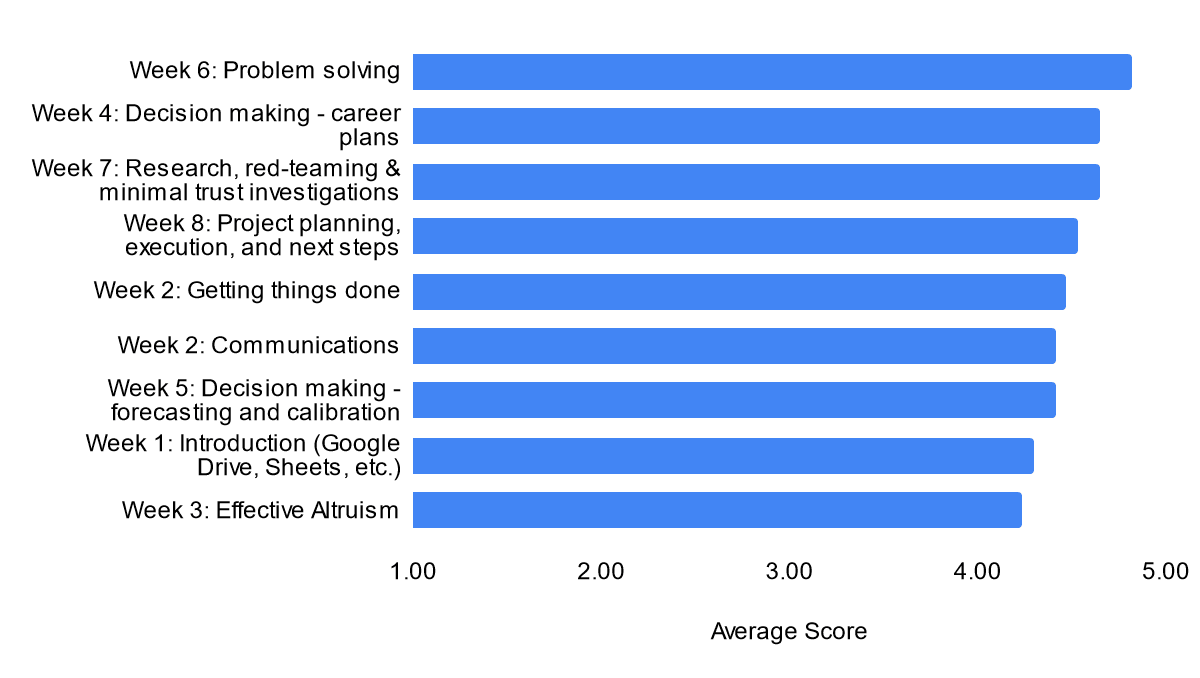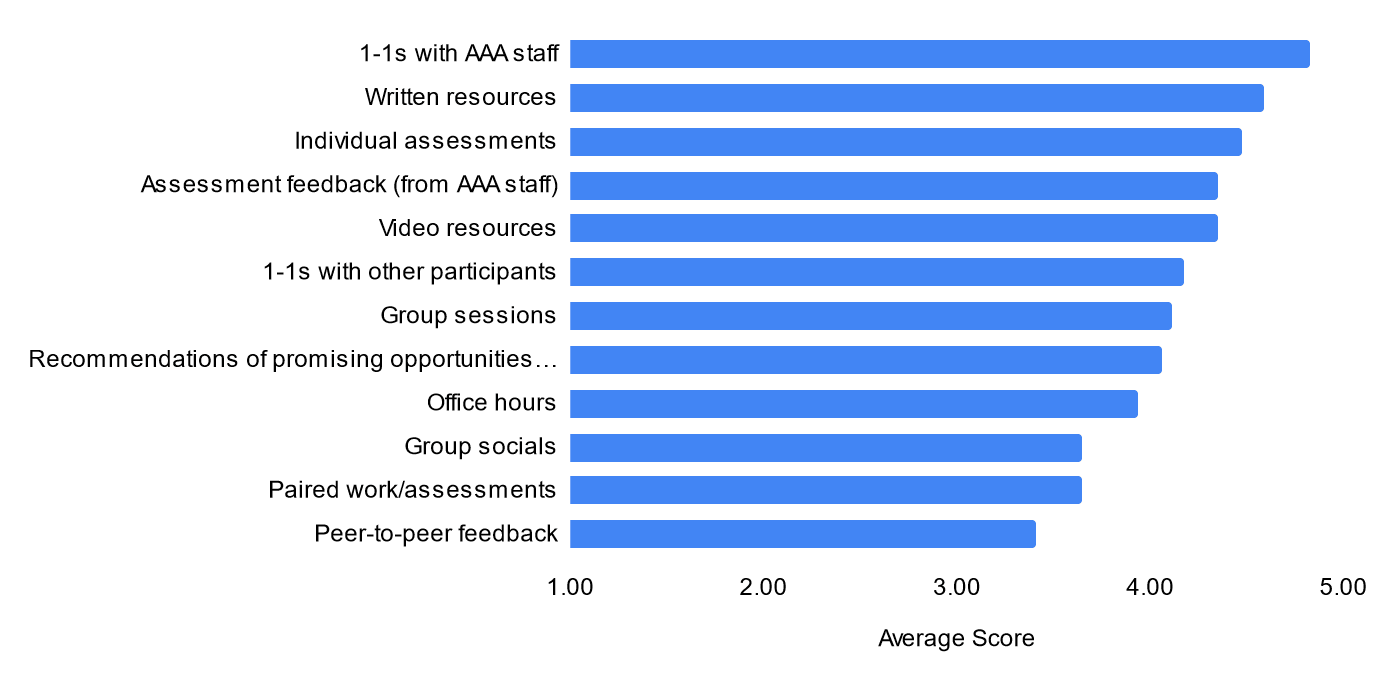Animal Advocacy Africa’s 2023 Review and Plans for 2024
By AnimalAdvocacyAfrica @ 2024-02-02T17:26 (+28)
Summary
This post is a detailed review of Animal Advocacy Africa’s work in 2023 and our plans for the year ahead. We go into detail about our work to foster knowledge sharing and ensure transparency, allowing our stakeholders and funders to understand our achievements, setbacks, and strategic decisions.
For casual readers and people interested in particular aspects of our work, we provide the most important information and links to the relevant sections here.
- We work to reduce and prevent the suffering of farmed animals by focusing on building the animal advocacy movement in Africa at a critical time: before animal farming practices become more intensive. See “Our purpose”.
- In 2023, we significantly strengthened the funding landscape for farmed animal initiatives in Africa. We helped our partner organisations raise a total of USD 172,500 and provided advice to foundations/grantmakers and individual funders/donors on grants and donations exceeding USD 140,000. Read more about our organisational capacity-building programme under “Building organisations''.
- We ran the first pilot of our new training programme for individual advocates from October to December 2023. We are continuing to support our participants as they move on to the next stage of our programme and begin to implement their own projects. The programme has been a success so far. Read about why we think this under “Training advocates”.
- We continued to contribute to the growth of the wider African animal advocacy movement through our research and communications. More details on our efforts in this area can be found under “Contributing to the wider movement”.
- We have made important strategic decisions for the year ahead. We plan to phase out our organisational capacity-building programme, focus our efforts on the training programme for individuals, support advocates in implementing evidence-based – and hopefully high-impact – projects based on our research findings to mitigate the growth of industrial animal agriculture that compromises animal welfare, look for collaborations with other capacity builders that can help us strengthen the movement in Africa, and expand our advisory role to funders and other stakeholders. Read more about our rationale under “Our strategy for 2024”.
- For 2024, we have a funding gap of $60,000. You can contribute to our mission by donating. Beyond financial contributions, you can support us by connecting with us or other farmed animal advocacy organisations in Africa, introducing us to relevant individuals, offering your services, or simply by raising awareness about the cause. Read more about this under “How you can help”.
- We also provide updates on “Our organisation” and “Our mistakes and key areas for improvement”.
Our purpose
We work to reduce and prevent the suffering of farmed animals by focusing on building the animal advocacy movement in Africa at a critical time: before animal farming practices become more intensive. We empower advocates who are interested in working on this issue by sharing knowledge, providing connections, and helping them build the skills to lead or work at impactful animal advocacy organisations.
To read more about why this is an important cause, please refer to our post on the rapid rise of animal farming in Africa and our presentation at the Conference on Animal Rights in Europe (CARE).
Our work in 2023
In our 2022 review, we outlined three areas of strategic prioritisation for the year 2023:
- Continuing and enhancing our capacity-building programme
- Regranting funds to promising individuals and organisations
- Identifying strategies to mitigate the rise of factory farming in Africa
In the following subsections, we discuss our progress on these areas and outline the main outcomes of our work.
Building organisations
Strategy
The capacity-building programme for animal advocacy organisations has been the central focus of our work. We ran a pilot of this programme in 2021 and a first full year of support for 17 organisations across eight countries in 2022. We supported these organisations across fundraising, strategy, operations and communications.
In our strategy for 2023, we decided to make substantial changes to this programme, to focus our efforts on the most impactful ways to build African farmed animal organisations. In our first strategic priority for 2023, we wrote:
“Rather than increasing the number of partners we work with, this year we intend to prioritise the most promising and strategically-aligned organisations, that are specifically focusing on farmed animal welfare. We plan to focus on these high-priority organisations, providing personalised and core support to directly improve their strategy and output; while building a wider network of advocates through our general, public work to facilitate connections and develop a coherent regional effort.”
Subsequently, we employed a dual strategy in 2023 to find the most impactful organisations to work with.
- We concentrated our in-depth support on a smaller number of highly promising organisations in our programme.
Based on an evaluation framework, we grouped the organisations we had worked with in the past into different priority groups, focusing our efforts accordingly. Organisations received varying levels of personalised support where we believed we could make a meaningful impact. Concurrently, we continued to offer general support deliverable en masse (rather than on a one-to-one basis) to the broader group of organisations within our network, primarily by sharing resources and opportunities (e.g. trainings, grant applications) and hosting group training sessions. To focus our efforts, we also stopped or scaled down certain forms of support previously offered, such as matching volunteers with organisations. - We substantially widened the scope of our search for and outreach to organisations we had not yet known or interacted with before, to find promising additions to our programme.
On the basis of our database of African animal advocacy organisations, we conducted a shallow review of 74 organisations with at least a partial focus on farmed animals. Based on this initial assessment, we decided to reach out to 22 of these organisations to learn more about their work. This process allowed us to identify various relevant organisations, some of which we provided further support to.
In addition to the support provided directly to organisations, we also focused more of our efforts on working with funders and other stakeholders who needed information and feedback on the work of certain organisations in Africa. While we had provided this kind of service in the last year already, we leveraged the scanning and evaluation process described above to enhance our service in this area in 2023. This included a pilot regranting project, as expressed in our strategic plans for 2023, where we collaborated with a funder on distributing grants to promising projects.
Outcomes
We think adopting the dual strategy was the right strategic decision. The most important outcomes of our organisational capacity-building efforts in 2023 were the following:
- We provided in-depth fundraising support to four organisations, helping them raise a total of USD 172,500. This is arguably the largest area of impact from our organisational capacity-building support.
- We provided advice to four foundations/grantmakers. Two of these grantmakers awarded grants totalling USD 95,000 to organisations that we provided advice on. They also refrained from funding organisations that we did not endorse, but these amounts are much harder to calculate. Thus, the mentioned figure should be viewed as a conservative estimate of the grants we influenced and could be an underestimate. The positive feedback we received from funders suggests that our advice likely improved the quality of these grants, although we cannot confirm this with certainty.
- We provided advice to ten individual funders/donors, who subsequently donated USD 40,701 to African organisations that we provided advice on.
- We collaborated with two funders on regranting or channelling funds to certain organisations. These funders granted a total of USD 5,569 to organisations that we recommended.
For the sake of brevity, we have chosen to highlight only the key aspects and outcomes of our work here. Readers seeking to understand more are encouraged to refer to appendix A for a detailed list of support provided to organisations in 2023 and the outcomes observed. We also provide an update on certain outcomes from our 2022 review in appendix B, as additional outcomes came to light only after the initial publication.
To more concretely illustrate (the impact of) our work, below is a short overview of two organisations that were in our high-priority support group over the last two years:
- Since joining our programme in 2022, Animal Welfare League (AWL) in Ghana has received our support on a broad spectrum of issues. Initially, in 2022, we influenced their decision to pursue cage-free advocacy in Ghana, facilitated their introduction to the Open Wing Alliance, and helped them secure their first grant of USD 20,000 from the EA Animal Welfare Fund. By 2023, our assistance enabled AWL to obtain an additional USD 97,500 in grants from the EA Animal Welfare Fund, the Open Wing Alliance, and the Tiny Beam Fund. Moreover, we established a partnership with Ribon, generating approximately USD 1,000 monthly for the organisation. Beyond fundraising, our support extended to various other areas: facilitating their participation as speakers at the AVA Summit in both 2022 and 2023, connecting them with volunteers who developed their website, and guiding them in using Mailchimp for newsletter campaigns. This has enabled AWL to publish Africa's first cage-free egg producer directory and to establish a national cage-free farm network in Ghana. As of January 31 2024, AWL has reported having 93 farmers in their network and has secured commitments for cage-free housing for 369,110 laying hens. They are now also undertaking an economic analysis of poultry production systems in Ghana.
- We played a crucial role in the incubation of the Animal Welfare Competence Center for Africa (AWeCCA). We supported the founder, Paul, when he was interested in starting a project to help farmed animals but was unsure what effective strategy or intervention to pursue. In 2022, we provided strategic advice and facilitated connections to research services offered by Animal Ask. Their research, combined with our feedback, influenced Paul to adopt a high-impact intervention – a decision we believe might not have occurred without our involvement. We then supported AWeCCA in securing a USD 75,000 grant from the EA Animal Welfare Fund. This has enabled AWeCCA to engage in government outreach efforts aimed at curtailing the expansion of industrial animal agriculture in Uganda. In 2023, they formed a task force committee which has appraised the current policy and legislative framework in Uganda, progressing toward recommendations for revised policies. They also met with several stakeholders to advocate for updating and reforming the current Animal Cruelty Prevention Act of 1976. This work was covered in local media. In addition, AWeCCA presented insights on chicken caged farming in Uganda at a conference in Ghana and visited Ethiopian stakeholders in the animal agriculture industry to discuss how development cooperation NGOs can leverage guidelines for animal welfare in their initiatives. More on their progress can be found in their 2023 review.
These two organisations likely represent the bulk of our direct impact on organisations in 2022 and 2023. We discuss the strategic implications of this in our strategy for 2024.
Training advocates
Strategy
In last year’s review, we had mentioned regranting to promising advocates and organisations and research into evidence-based strategies to mitigate the rise of factory farming in Africa as two of our three strategic priorities for 2023. While we did focus on these issues individually (see our regranting efforts described above and the research project described below), we also initiated a new programme to amplify both of these efforts: a training programme for individuals.
We planned to do the following:
- Fundamentals:
Run an eight-week, expenses-covered training programme for up to 30 participants, providing important concepts and skills for effective animal advocacy. - Advanced:
Provide extended support for several months to the most promising and committed participants of the fundamentals programme, focusing on enabling them to implement high-impact interventions identified in our research findings and offering seed grants and incubation for these projects.
With this programme, we aimed to leverage the findings from our research project to implement promising strategies to mitigate the rise of industrial animal agriculture in Africa, allocate grants to promising projects, and strengthen talent pipelines in the African animal advocacy movement.
Outcomes
We ran the first pilot of our fundamental training programme from October to December 2023. Below, we report on the preliminary outcomes from this programme. However, these findings should be interpreted cautiously. This was merely the first of two steps in our outlined process, and the subsequent advanced component will significantly influence the key outcomes of the programme as whole, such as the number and nature of the projects we will incubate.
We received 293 applications to our programme. Based on an initial application form, a test task, and an interview, we selected 20 participants for our programme. These participants came from seven different countries. Kenya, Nigeria, and Uganda were the most heavily represented countries, with seven, four, and three participants respectively. Ghana and South Africa featured two participants each. The remaining two participants came from Côte d’Ivoire and Zambia.
Participants took part in an eight-week programme, with an expected time commitment of approximately 10 hours per week. Each week was dedicated to a different topic, including communications, task management, decision-making, applied research, project planning, and more. Participants were given access to a wide variety of written and video resources, they worked on individual and paired assessments, received feedback from and had meetings with each other and AAA staff, attended group sessions and office hours, and received recommendations to career opportunities.
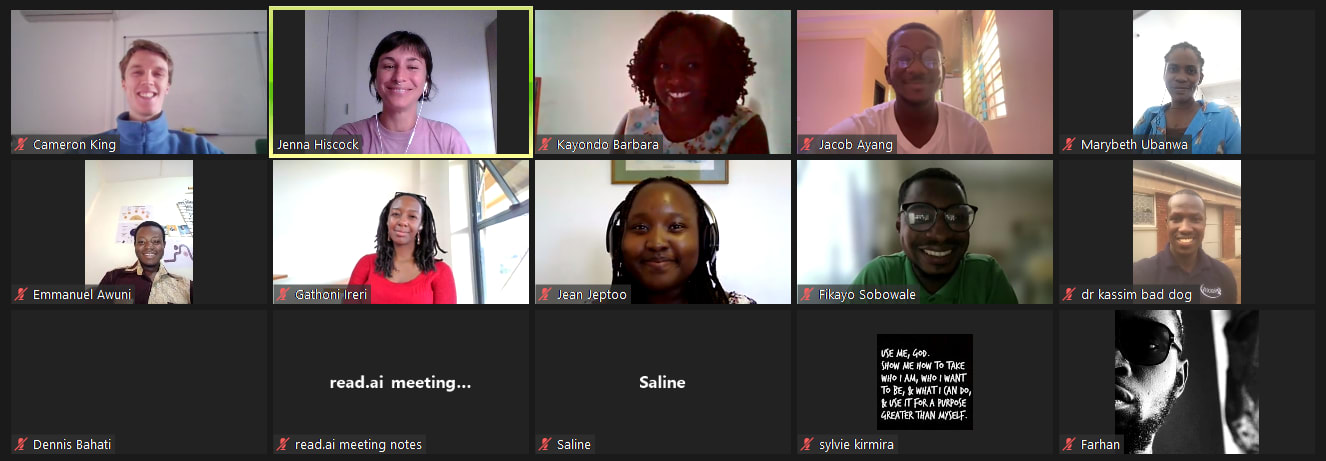
Overall, the 17 participants that completed our final survey seemed happy with the programme. We illustrate the perceived value of the different components of our programme in appendix C. Participants also reported that the programme had a substantial positive impact on them. The most-mentioned impact categories for participants were an enhanced knowledge about effective animal advocacy (e.g. focus on impact, importance of M&E, primacy of large and neglected animal groups), new connections and a better network of fellow advocates (esp. in Africa), and an increased motivation and willingness to focus their career on effectively helping animals. All of these impact categories were mentioned by 55-65% of respondents. Almost as many participants mentioned enhanced soft skills (e.g. communication, decision-making, task management) and enhanced career decisions (e.g. spreadsheet decision-making, learning from other advocates, having an idea for their own project) as an outcome of the programme. To a lesser extent (mentioned by ~30% of respondents), the programme also increased participants' awareness of opportunities and enhanced their technical skills (e.g., knowing how to effectively use certain tools like Google Sheets).
To illustrate, here are some of the many testimonials from our participants:
 | “This training opened my eyes to the broader spectrum of impactful interventions beyond plant-based advocacy. It has broadened my knowledge, resolved uncertainties, and instilled confidence to pursue a career in animal advocacy. And the best part? I've learned more in these 8 weeks than I ever thought possible in my career so far. The connections I've made with experts outside the training, and fellow participants are incredible.” – Emmanuel Awuni |
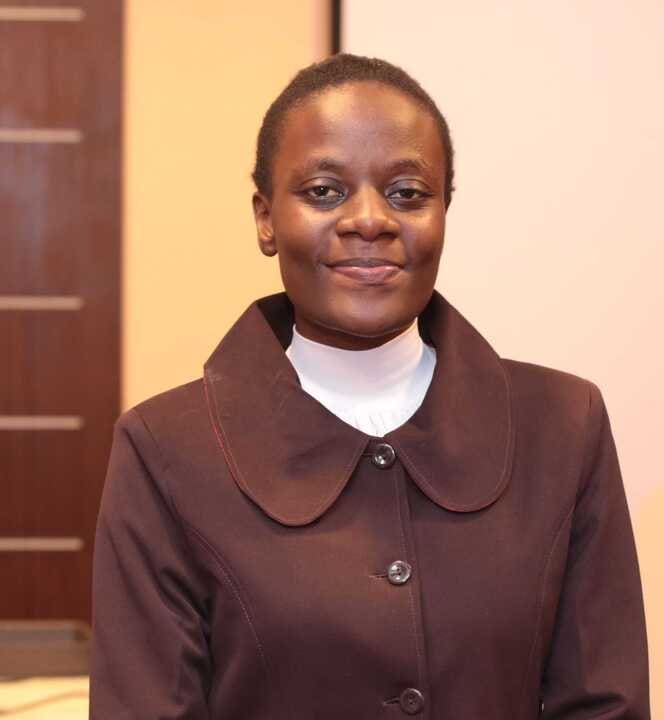 | “Before this programme, I had never considered initiating and managing my own projects related to animal welfare. I have gained a great deal of knowledge about project planning, decision-making, and career planning from this programme. I am now confident to work in animal advocacy organisations and later on start my own projects.” – Saline Akoth |
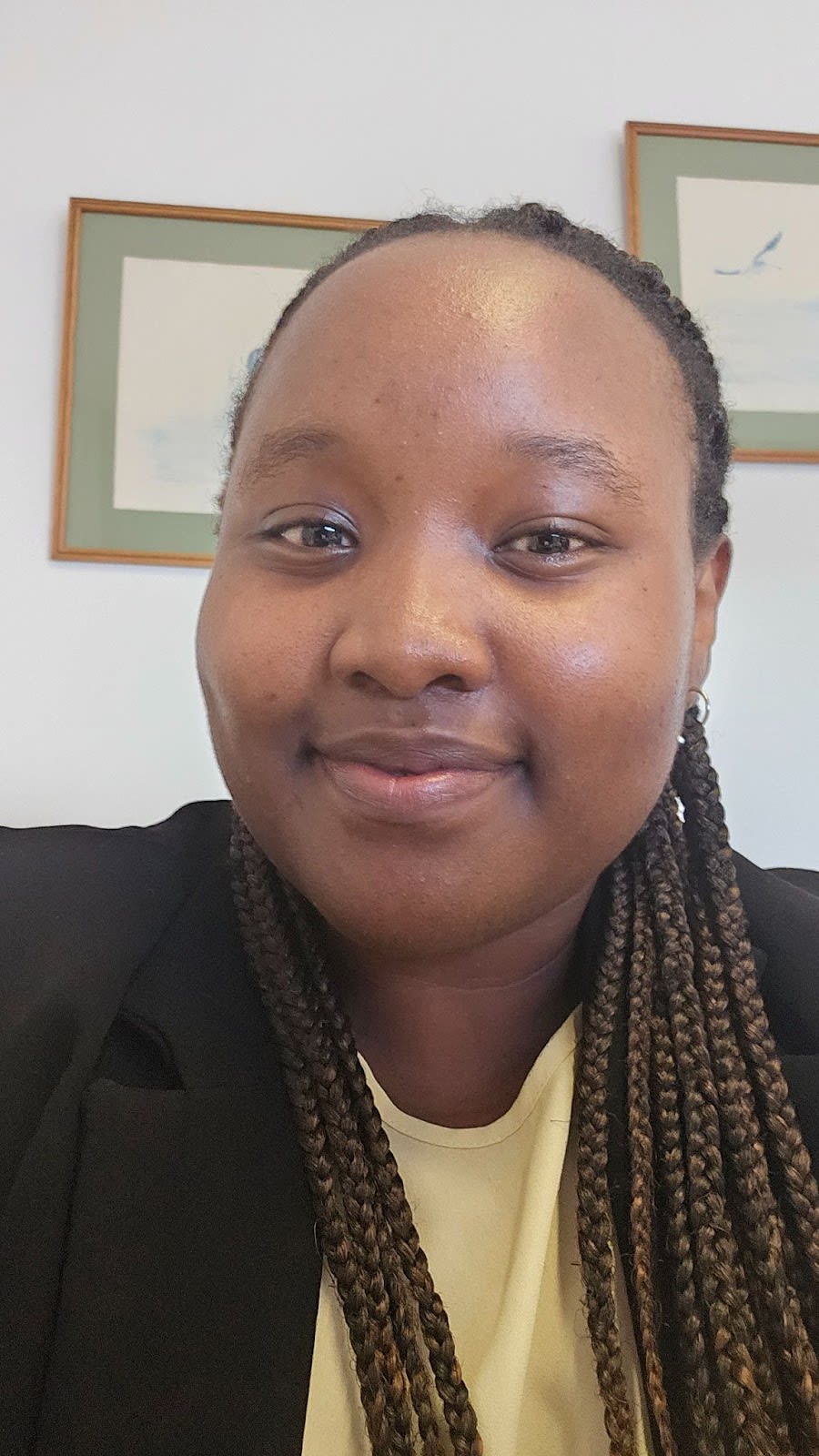 | “The AAA training programme offered me incredibly useful information. Following the completion of the programme, I am able to create a project and career plan and I now have the necessary tools to refine the plans as required. I am now more willing to gain experience through my own independent projects rather than focusing solely on already-existing organisations to provide an opportunity for me to gain experience. I highly recommend this programme to any and all animal advocates in Africa.” – Jean Jeptoo |
We plan to further support up to nine participants in getting high-impact projects off the ground in the next phase of our programme. While we anticipate some drop-off in the follow-through on these projects (e.g. because participants decide to pursue other opportunities), we aim for at least two projects to be led by two or more of our programme participants going forward.
Additionally, we plan to continue supporting a few other participants who do not intend to start their own projects but instead prefer to apply to existing roles and organisations within the movement. We will also continue to share resources and aim to build a community for our alumni.
Tangible outcomes from the programme will be tracked over time and reported in future updates. We plan to closely monitor the career progression and project developments of our participants.
Contributing to the wider movement
Strategy
Next to these specific and targeted programmes, we are also continuously engaging in wider outreach and research to strengthen the farmed animal advocacy movement in Africa. Over the last years, we published research and curated databases to enhance information and transparency, attended conferences to share our work and find collaborators, and organised webinars to enable knowledge sharing and networking.
Outcomes
The main outcomes in this area were as follows:
- In 2023, we attended six conferences and hosted two webinars. At the Conference on Animal Rights in Europe (CARE), we gave a talk which is available on Youtube.
- Visits to our website grew from 7,149 last year to 9,867 this year. We continued to maintain and update the free databases of resources and opportunities available on our site. Most importantly, we have significantly updated our database of animal advocacy organisations in Africa, featuring 428 organisations as of December 2023.
- We released three blog posts but no detailed research reports. In 2024, we aim to publish the results from two research projects.
- We grew our LinkedIn followers from 1,388 to 1,920.
- We sent quarterly newsletters to a relatively stable number of 200-300 recipients.
- Our work received more mentions in various places in 2023 compared to 2022 (such as the Impactful Animal Advocacy newsletter, in blog posts by organisations like ACE and Faunalytics, and on podcasts like How I Learned to Love Shrimp).
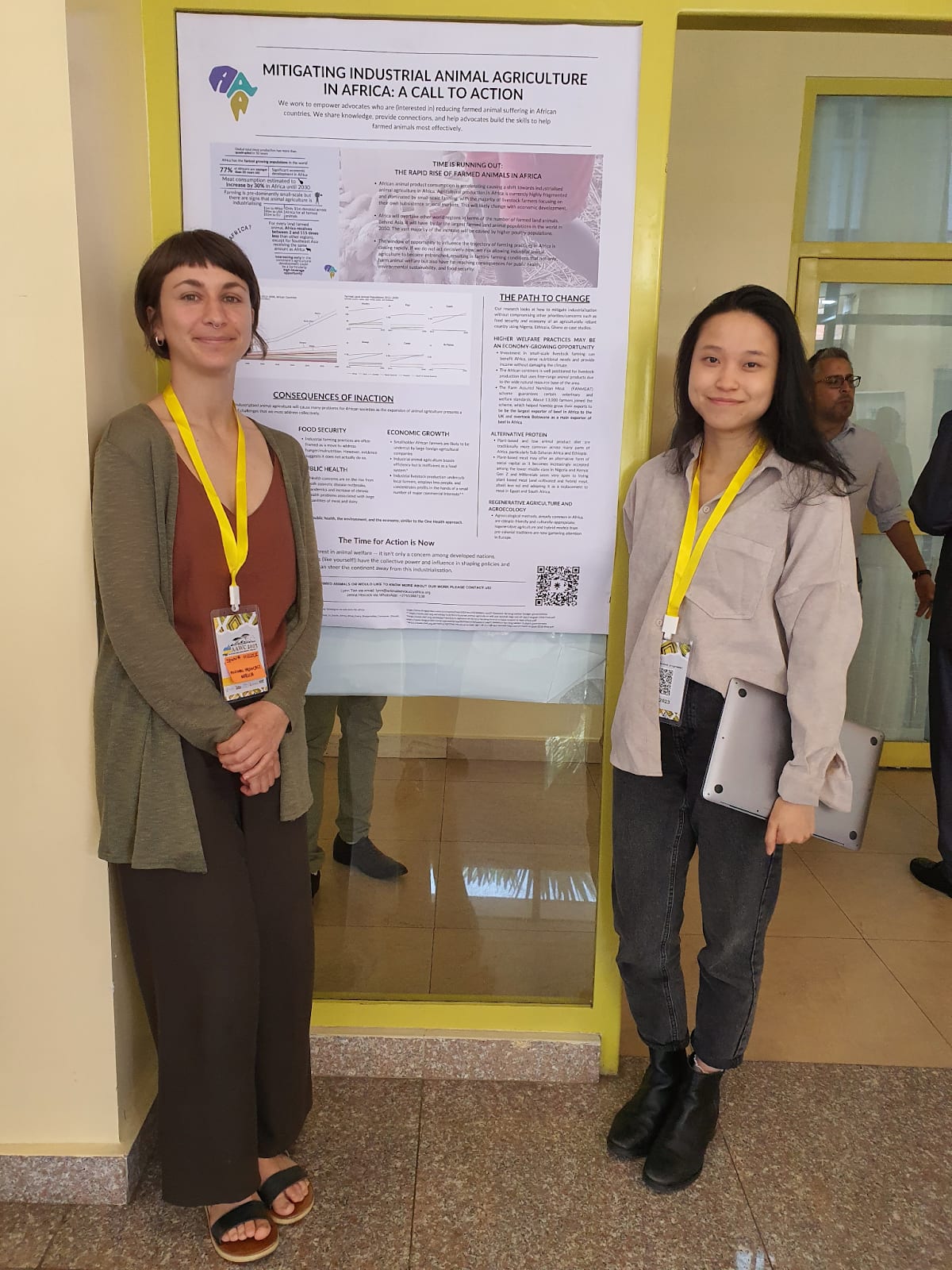
Our strategy for 2024
Phasing out our organisational capacity-building programme
In 2024, we are shifting our focus from organisational capacity-building (ORG) to the training programme for individual advocates (TP). This strategic pivot is informed by several key observations:
- Our team found outcomes from TP more promising than ORG. TP participants showed higher engagement compared to ORG and provided overwhelmingly positive feedback.
- Our most successful partner organisations from ORG were either nascent or not formally established when we began our support, aligning with TP's incubation model and its potential for greater impact. We have seen that fostering change at the individual level is more feasible and impactful than modifying established organisations.
- Our highest-priority organisations are now well-integrated into the animal advocacy movement. They have established connections with major funders and networks, reducing the need for our intensive support. At the same time, identifying new high-priority organisations for intensive support has been challenging, leading to diminishing returns in the ORG approach. Even though the amount raised by organisations with our help has increased from 2023 to 2022, a lot of this success seems to have been a delayed impact of our work in 2022 and was primarily driven by only two organisations. Also, the successful strategic shifts observed in 2022 (e.g. as a result of connecting organisations to wider networks for cage-free work) have not been replicated to the same extent recently.
- Running ORG and TP simultaneously seems inefficient, given limited capacity and resources. Additionally, staff from existing organisations are not prevented from participating in TP.
In practice, this strategic shift will be implemented as follows:
- Where it is impactful to do so, we will continue supporting organisations upon request, especially our high-priority groups. However, proactive efforts to identify and provide in-depth support to organisations will be discontinued. Communication channels like our WhatsApp group for ORG will remain active for occasional sharing of resources and opportunities.
- Staff from existing organisations will be encouraged to join TP as individual advocates. With the knowledge and skills they acquire from TP, they are welcome to implement lessons learnt for their organisations.
- While maintaining most activities aimed at the broader movement, we will adjust them to align with our strategic shift. For instance, webinars will be organised primarily for the benefit of TP participants or the wider movement, rather than specifically for organisations in ORG.
By focusing on TP, we aim to nurture individual advocates, incubate new talent and ideas, and foster a wave of advocates equipped to effectively address the challenges of farmed animal welfare in Africa. This shift is guided by our recognition of the higher impact and efficiency achievable through an individual-centric approach.
Enhancing our training programme for individuals
Owing to what we think is a preliminary success of our TP pilot, we have plans to run a second iteration of TP later in the year. Based on feedback from participants and our internal reflection, we have identified and discussed ways to enhance the programme and address existing bottlenecks. Key changes include an improved selection process for applicants, better expectation setting for participants, and prioritising programme components that participants found most valuable.
We plan to introduce some of these improvements for the ongoing second phase of our pilot programme, where we will provide extended support for several months to promising and committed participants. This advanced stage focuses on supporting participants to implement high-impact interventions and offering seed grants and incubation for these projects. We are leveraging findings from our project with Bryant Research to make recommendations to participants on evidence-based strategies to mitigate the rise of industrial animal agriculture that compromises animal welfare in African countries. The findings from this research will be published in the coming months.
Strengthening movement building efforts in Africa
Whilst there was positive feedback about our training programme, we recognise that we alone cannot develop the entire talent pipeline for Africa's farmed animal advocacy movement. Therefore, we see the need for a more comprehensive approach to talent development and are committed to collaborative efforts to build the movement more extensively. Key strategies include:
- Engaging with organisations like Animal Advocacy Careers or Impactful Animal Advocacy to encourage further investment into movement building within Africa, complementing our efforts.
- Focusing on initiatives targeting the upper funnel of the talent pool to attract and nurture early-stage interest in animal advocacy. Possible initiatives include forming a reading club or launching a series of online educational videos. We think this is vital for building a strong base of potential participants for both our programmes and the broader movement. While these top-of-the-funnel activities are crucial, we have decided they should remain separate from our TP so that each initiative has a distinct focus and can effectively cater to different stages of advocate development. Whether such activities will be implemented by us or other capacity builders remains to be seen.
- Pursuing plans to host an African conference on effective animal advocacy by summer 2025. In collaboration with the AVA Summit staff, we aim to make this conference a reality, serving as a major platform for talent engagement, networking, and movement strengthening across the continent.
These strategies aim to enhance the talent pipeline in African animal advocacy alongside our training program.
Regranting and expanding our advisory role to funders and others
To further accelerate the development of the African farmed animal advocacy movement, we plan to expand our collaboration with funders and other stakeholders that can benefit from our knowledge and insights. We have previously provided this type of support and this expansion is a natural progression of our evolving role and capabilities.
Previously, our services in this area were primarily demand-driven, with stakeholders proactively seeking our advice and feedback to support their decision-making processes. Positive feedback from funders – both subjective endorsements and objective data showing changes in funding amounts and recipients based on our input – has encouraged us to adopt a more proactive advisory role. This will extend beyond funders to include other stakeholders who could benefit from our expertise, such as advising conference organisers on applicants from Africa.
While embracing our advisory role, we are still deliberating the extent of our involvement in actively regranting funds to certain organisations. We are mindful of the implications of being perceived as a funding source and are unsure whether it is worth spending the additional effort required for this. For now, we are committed to actively reallocating funds to participants of our TP, providing them with stipends and seed funding for high-impact projects. Future decisions regarding further regranting will be based on a thorough evaluation of the cost-effectiveness of regranting and how they fit with our strategic objectives.
Our organisation
Budget and financial information
In 2023, our budget remained consistent with the previous year at USD 143,616. Our total expenses amounted to USD 96,897, reflecting a slight decrease from 2022's expenses of USD 100,300.
Our funding continued to be primarily sourced from philanthropic funds and contributions from high net worth individuals. Notably, we received two substantial donations totalling USD 70,000 from prominent figures in the effective animal advocacy movement. Additionally, we were awarded grants of USD 80,000 from the Effective Altruism Animal Welfare Fund and USD 20,000 from Animal Charity Evaluators. The trend of receiving a growing number of smaller donations from multiple individuals within the Effective Altruism and animal welfare/rights movements also continued.
We extend our deepest gratitude to our donors, whose generous contributions continue to drive our mission forward. Their support is invaluable to our efforts in improving farmed animal welfare across Africa.
Our staff and operations
In 2023, we had approximately three FTE staff on average. We recognise our small team size as a potential obstacle for our organisation. However, we have chosen not to significantly scale up our operations at this time, given the strategic shift and the need to assess the outcomes of our first TP. Should our training programme prove cost-effective, we will then consider scaling it up.
We have submitted registration to become an independent 501(c) organisation in the United States and are awaiting final confirmation.
Our mistakes and key areas for improvement
There are several ways in which we could have done better in 2023. We summarise the most important aspects here. A detailed list of our mistakes and how we intend to improve can be found in appendix D.
- Similar to last year’s review, we continue to face challenges in hiring and retaining additional qualified staff. While we are no longer as funding constrained compared to the previous year, we still encounter difficulties in accessing strong candidates that we could hire in our salary range. We aim for our TP and general movement building efforts to build stronger talent pipelines to help solve this problem.
- We should have transitioned from ORG to TP sooner in 2023, upon realising that we did not have the impact on organisations we were hoping for. The planning and development of TP, along with recruiting and selecting participants, took longer than anticipated. Our limited staff capacity was the primary contributing factor to this. With some of our existing staff transitioning to full-time roles this year and our emphasis on TP, we believe we are better positioned to concentrate on what we consider to be the most impactful direction moving forward.
- Our research project in collaboration with Bryant Research progressed slower than expected, somewhat affecting the timing for TP and delaying the implementation of actual interventions. The project is nearing completion now.
- We are still lacking a strong understanding of the cost-effectiveness of our programmes. We are hoping to get a better sense of this through BOTECs, CEAs, improving our M&E, and benchmarking against other similar meta organisations.
How you can help
Support our mission
We are looking for partners that can help us accelerate the growth of the farmed animal advocacy movement in Africa. Funders and other organisations have the opportunity to significantly contribute to our cause. Individuals can support farmed animal advocacy organisations in Africa by donating, connecting us with relevant individuals, offering their services, or simply by raising awareness about the cause. Even if donors or funders are not directly interested in supporting our work but believe in the importance of helping farmed animals in Africa, we are happy to provide guidance or assist in directing their funds to impactful initiatives.
For 2024, we have a funding gap of $60,000, having fundraised 80% of our budget. If you believe in our mission to build the farmed animal movement in Africa, you can support us with a tax-deductible donation.
We are incredibly grateful to all our donors and supporters. At this critical juncture in the neglected African animal advocacy space, every dollar donated goes a long way! Your contributions enable what we do – our impact is your impact.
Give us feedback
We don’t have everything figured out and we are just one organisation tackling a highly complex problem in a vast and diverse area. If you see flaws in our thinking or planning, please reach out or comment below. We always want to do better.
Connect with us
If you haven’t already, you can sign up to our newsletter or follow us on social media (LinkedIn and Facebook) to stay up to date about our progress and the wider farmed animal advocacy movement in Africa.
Our 2021 and 2022 reviews are available online.
Appendix
Appendix A: Detailed reporting on the outcomes of the organisational capacity-building programme
| Service offered | Outcomes |
| Fundraising | |
| We provided in-depth fundraising support to four organisations. | We helped these organisations raise a total of USD 172,500 throughout 2023. This is arguably the largest area of impact from our organisational capacity-building support. |
| We provided minor fundraising support to ten organisations and shared some resources and opportunities to all organisations in our wider reach (i.e. WhatsApp group). | The impact of this support is hard to gauge, as our contact with the organisations supported here is not as close as with the four above. We know of one case where an organisation secured USD 300 thanks to our support. However, the actual impact is likely much larger. For instance, various organisations that have been part of our programme in 2022 and 2023 secured ACE Movement Grants in 2023 and might have found this opportunity through us. |
| We collaborated with two funders on regranting funds to certain organisations. | These funders granted a total of USD 5,569 to organisations that we recommended. |
| We provided advice to four foundations/grantmakers. | Two of these grantmakers awarded grants totalling USD 95,000 to organisations that we provided advice on. They also refrained from funding organisations that we did not endorse, but these amounts are much harder to calculate. Thus, the mentioned figure should be viewed as a conservative estimate of the grants we influenced and could be an underestimate. The positive feedback we received from funders suggests that our advice likely improved the quality of these grants, although we cannot confirm this with certainty. |
| We provided advice to ten individual funders/donors. | These individuals subsequently donated USD 40,701 to African organisations that we provided advice on. |
| We ran one group training session on best practices in fundraising. | 42 people attended this session and gave overall positive feedback. We are unsure how this influenced fundraising practices within attendees’ organisations. We know of at least one organisation that has actively implemented some of our recommendations. |
| Strategy | |
| We provided in-depth strategic advice and input to six organisations. | We substantially enhanced one organisation’s approach to interacting with farmers and helped another organisation refine their cage-free strategy. Two organisations did not follow up or stopped interactions with us. In one of these cases, the founder initially seemed to be very interested and also enrolled in the EA Nigeria fellowship. However, they then decided to drop out of the movement completely. We are unsure whether this was a cause of our work and whether this was a positive or negative development, given the founder’s lack of value alignment. We take this as a learning case for us. |
| We connected six organisations to three individuals that could help them refine their strategy and/or make important connections. | One of these connections led to an in-person meeting in Ghana, which seems to have led to significantly increased engagement in the effective animal advocacy movement for both parties. Another one has led to ongoing corporate campaign consultancy for one of our highest-priority organisations. |
We provided personalised conference recommendations to three organisations and broad recommendations to all organisations in our wider reach. We recommended organisations as speakers for AVA 2023 and supported applications for travel grants. For AVA 2024, we provided advice and recommendations to the AVA Summit team to aid their decisions in allocating travel grants. | One of our organisations attended EAG Boston. Two organisations in our programme spoke at AVA 2023. However, both of them had also already spoken at the 2022 summit, so we probably did not have much incremental impact on this in 2023. At least one further organisation received a travel grant for attending the conference. Our input significantly influenced travel grants for AVA 2024. We hope and think that our advice enhanced the quality of these grants, but we cannot be sure of this. The final amounts are still to be seen. |
| We recommended two programmes to the relevant organisations in our network: The Mission Motor’s M&E training programme and ProVeg’s Kickstarting for Good initiative. We also shared various other resources and opportunities to all organisations in our wider reach (i.e. WhatsApp group). | Four organisations that we had worked with before were accepted into The Mission Motor’s programme. None of our African contacts participated in ProVeg’s programme. We are unsure about any further tangible outcomes from our recommendations. |
| We worked on integrating African animal advocates into the Impactful Animal Advocacy (IAA) network, specifically inviting people to the Slack community and recommending that they use the newsletter. | Various of our contacts have joined the IAA Slack channel. One of our organisations was also repeatedly featured on the IAA newsletter over the course of the year and took an active role in hosting the African channel on the IAA Slack. |
| We ran one group training session on running cage-free projects in Africa. | 41 people attended this session and gave overall positive feedback. We are unsure how this influenced fundraising practices within attendees’ organisations. |
| We connected one researcher with four organisations in Africa that could provide relevant insights on animal research and testing in Africa. | The contacts were helpful and contributed to the final research report and a paper the research aims to publish in a peer-reviewed journal. |
| Operations and communications | |
| We provided training on how to use MailChimp for effectively sending newsletter to one organisation. | The organisation started sending quarterly newsletters with the help of our advice. |
| We provided minor operations and communications support (e.g. recommending trainings or outsourced services) to five organisations and shared some resources and opportunities to all organisations in our wider reach (i.e. WhatsApp group). | One organisation attended a training session recommended by us. We are unsure about any further tangible outcomes from our recommendations. |
| We gave two organisations operational stipends totalling $240. | The stipends enhanced the IT capabilities of two organisations to professionalise their operations and communications. |
Appendix B: Updates to 2022 review
We identified additional outcomes that came to light only after the initial publication of our 2022 review. For transparency, we are highlighting them here rather than revising the original review. The following sentences need to be revised as we have become aware of additional grants that organisations have secured with our assistance:
- “We helped our partner organisations raise a total of $106,402 (previously: $84,902) throughout 2022.”
- “For about $37,500 (previously: $20,500) we played a major role as we directly recommended funding opportunities and provided feedback on applications, but it is possible that these grants may have been secured without our support. “
- “For $45,887 (previously: $41,387), we probably played a smaller role.”
The realisation that we underestimated our impact last year suggests we might do so again this year. Our Monitoring and Evaluation (M&E) systems have limitations and cannot capture all outcomes of our work. Given the diverse support we provide to our organisations, it is inevitable that some details are overlooked. It is also challenging to determine our exact impact on specific outcomes. For example, several organisations we are no longer in close contact with have obtained grants from funders we had previously recommended to all organisations in our network through a general message. We decided that tracking all such instances to ascertain whether these organisations discovered these opportunities through us or another source is not cost-effective. Nevertheless, we are continuously exploring ways to enhance our M&E systems and welcome any suggestions on this matter.
Appendix C: Value of different training programme components to participants
We asked our training programme participants both about the value of different services and content of the programme. The results, illustrated in the two graphs below, display the average score from all participants, measured on a scale ranging from "not at all valuable/helpful" (=1) to "extremely valuable/helpful" (=5).
We find that content for all weeks of the programme was rated as very or extremely valuable. There was minimal variation in the perceived value of different weeks’ content among participants. The content on problem solving and career plans scored highest.
We find that all services were at least moderately valuable to participants. 1-1s with AAA staff were the most valuable component of the programme. Although this level of interaction with each participant requires significant effort from AAA staff, it appears to be a worthwhile investment.
Appendix D: Our mistakes and key areas for improvement
| How we failed | How we intend to improve |
| Organisation and strategy | |
| Similar to last year’s review, we continue to face challenges in hiring and retaining additional qualified staff. While we are no longer as funding constrained compared to the previous year, we still encounter difficulties in accessing strong candidates that we could hire in our salary range. | We aim for our TP and general movement building efforts to build stronger talent pipelines to help solve this problem. |
| We should have transitioned from ORG to TP sooner in 2023, upon realising that we did not have the impact on organisations we were hoping for. The planning and development of TP, along with recruiting and selecting participants, took longer than anticipated. Our limited staff capacity was the primary contributing factor to this. | With some of our existing staff transitioning to full-time roles this year, thereby increasing our total FTE, and our emphasis on TP, we believe we are better positioned to concentrate on what we consider to be the most impactful direction moving forward. |
| Research | |
| Our research in 2023 progressed slower than expected. One of our research reports has experienced ongoing delays and will now only be published in the first quarter of 2024. Our research project in collaboration with Bryant Research also progressed slower than expected, somewhat affecting the timing for TP and delaying the implementation of actual interventions. | The two research projects mentioned are nearing publication. In 2024, we aim to enhance our research process and capacity. We now have a full-time researcher on our team who participated in the CE RTP and can leverage knowledge gained from the program. The process could be further improved by clearer prioritisation of different research projects, improving coordination with other research organisations or individuals, and potentially engaging more research volunteers. |
| M&E | |
| Our yearly review was delayed and was only conducted in January 2024. This slightly slowed down our progress in defining our priorities for the year ahead. | The delay was primarily due to our researcher's absence during the last quarter of the year for training. We anticipate that this will not be an issue in 2024. |
| We are still lacking a strong understanding of the cost-effectiveness of our programmes. | We are hoping to get a better sense of this through BOTECs, CEAs, improving our M&E, and benchmarking against other similar meta organisations. |
| We have not been as proactive as we could be in obtaining honest and constructive feedback from organisations in our programme. Although we identified this issue in last year's review and made efforts to improve our processes, we did not achieve substantial progress. | This issue is resolved by shifting our strategic focus away from ORG and towards TP. The program we will now prioritise is significantly more structured and demands greater engagement from participants, which will enable us to collect feedback and monitor outcomes more effectively. We have an M&E framework in place for TP that we feel more confident in compared to that for ORG previously. |
Daniel Abiliba @ 2024-02-07T21:38 (+8)
Really excited about the work you have done since coming into the space. Looking forward to seeing the ripple effects of your TP program.
Geofrey Junior Waako @ 2024-02-05T20:38 (+5)
Wonderful work AAA is doing here in Africa.
Jamie_Harris @ 2024-02-08T22:13 (+4)
From a quick skim, the fellowship seems promising!
(Basing this mostly just off (1) solid application numbers given a launch late last year and (2) positive testimonials.)
